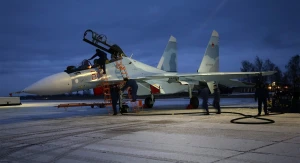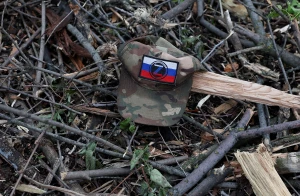
Russian attacks on southern ports near Romania's border labeled as war crimes by Romania's Foreign Minister
Romanian Foreign Minister Luminița Odobescucriticized Russia's regular air attacks on Ukraine's southern ports bordering her country and called Russia's actions war crimes.
She specifically referred to these actions as war crimes, as reported by European Pravda.
Odobescu pointed out that some of these Ukrainian ports, which have been targeted by Russian air attacks, are situated in close proximity to Romania, on the opposite side of the Danube River. She highlighted that remnants of Russian attack drones have even been discovered in Romania.
"The Russian attacks on civilian infrastructure, including ports along the Danube near the Romanian border, constitute war crimes. Russia's activities near our border undermine Ukraine's economy, global food security, and civil navigation in the Black Sea," she emphasized.
Odobescu also affirmed that Romania will continue to support Ukraine in the transit of grain. According to her, "solidarity roads" in Romania have facilitated the transportation of up to 25 million tons of products.
"We are working closely with the Ukrainian government, the European Commission, and our partners to increase transit capacity from 2 to 3-4 million tons by the end of the year," she stated.
Additionally, she expressed hope that negotiations for Ukraine's accession to the EU would commence by the end of 2023.
The consequences of Russian shelling for Romania
On the night of September 3-4, Russia carried out a massive strike on southern Ukraine with Iranian ‘kamikaze’ drones. According to Ukrainian border guards, some of the drones crashed and exploded on the territory of Romania, a NATO member state. Foreign Minister Dmytro Kuleba said that there was photographic evidence of the drones crashing in Romania.
On Wednesday, September 6, Minister Angel Tilvar confirmed that a team from the Ministry of National Defence had found suspected pieces of a Russian drone in Romania.
Romania promptly informed NATO about the discovered fragments, which appeared similar to Russian military drones. NATO expressed support and closely monitored the situation.
On September 12, it was reported that Romania's Ministry of Defense had initiated the construction of a shelter for the local population in the village of Plauru, near Izmail, Ukraine.
Additionally, Romania decided to relocate air defense equipment closer to the border.
Romania's Ministry of Foreign Affairs strongly protested against Russia for the drone debris falling on its territory. The Russian Ambassador was summoned, and consultations with NATO were initiated.
Romania's Deputy Chief of Defense Staff announced that the Romanian military was prepared to shoot down Russian drones if necessary. Romania had deployed approximately 600 military personnel and radar systems in the Danube Delta region. President Klaus Iohannis emphasized that the Russian UAV attacks were not targeted at Romania but deemed them unacceptable.
On September 26, the Orlivka border crossing point with Romania ceased operations due to Russian strikes in the Izmail district of Odesa. During the attack, a bus with children was present, and civilian infrastructure at the checkpoint sustained damage, including the destruction of nearly 30 international trucks, six of which were completely incinerated.
Additionally, on the evening of Friday, September 29, Russian attack UAVs were launched against Ukraine. These Shaheds moved from the Black Sea to Odesa and also targeted an infrastructure site in the neighboring Vinnytsia region. During this attack, the radar surveillance system detected a potential violation of Ukraine's airspace, which was confirmed by Romania's Ministry of Defense.
- News













































